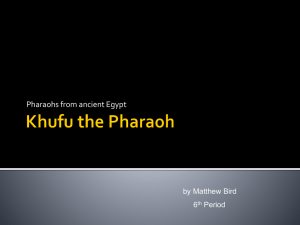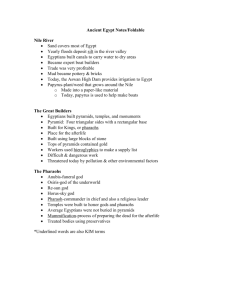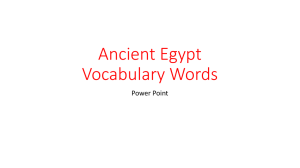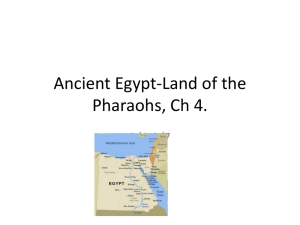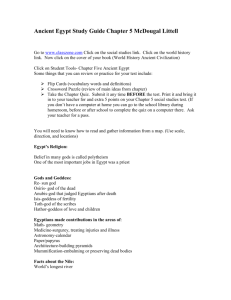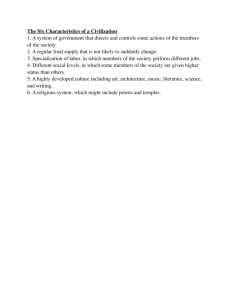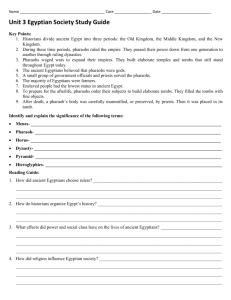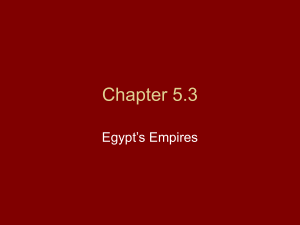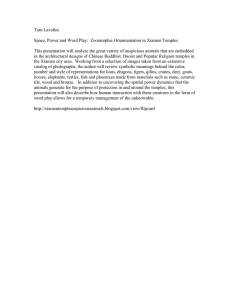The Middle Kingdom
advertisement
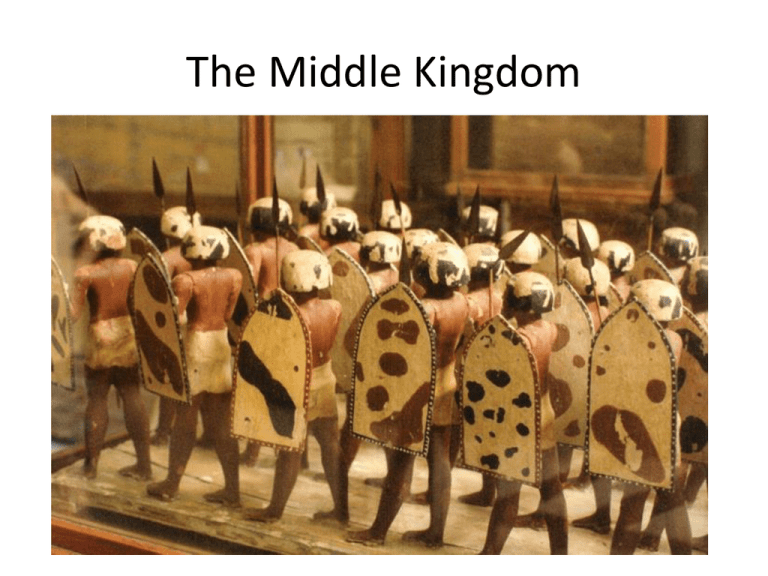
The Middle Kingdom Middle Kingdom – The Golden Age • Expansion of the Empire – Captured Nubia(Sudan) to the South and what is today Syria – tribute( forced payments) had to be given to Egypt – Within Egypt farmland was expanded to increase the surplus – Pharaohs added dams and more irrigation – A canal was built between the Nile and the Red Sea – increase trade Arts • Temples and tombs were covered with colorful paintings of deities and murals about daily life • Sculptors created large carvings and statues of the pharaohs • Poets wrote songs and tributes to the pharaohs • Architecture changed from pyramid building to cutting tombs into cliffs • Temples were built to praise the gods and goddesses who brought prosperity and peace The End of the Middle Kingdom • Invaded by the Hyksos who were from western Asia • 150 years under foreign control • Ahmose led a revolt and forced out the invaders and became Pharaoh • This is the start of the New Kingdom1550 B.C.- 1080B.C. Hatshepsut- 1480 B.C. -Ruled with husband, behalf of her nephew and finally made herself pharaoh – She was more interested in trade than conquest • Built new boats • Started trading in eastern Africa • Traded beads, metal tools and weapons for gold, ivory , incense and ebony Used wealth to build temples and monuments in the Valley of the Kings Thutmose III • Fought series of aggressive wars – Expanded the empire – Egypt grew rich from tribute • Gold, copper, ivory and other valuable goods – Started a new practice – Slavery • POW’s used to build temples , palaces and tombs Amenhotep( Akhenaton)& Neferititi • Changed Egypt’s religion • One god - Aton • Priest were forced out and replaced by unqualified administrators • Neglected his duties , because he was devoted to his new religion • Egypt lost much territory to the Hittites • Art and culture were reflected by the religious changes Ramses II • 66 year reign • Empire building through a series of wars and conquests • Built a large army to retain lost lands • Launched a rebuilding program- constructed many new temples and monuments • Emphasis on art, literature, and architecture
